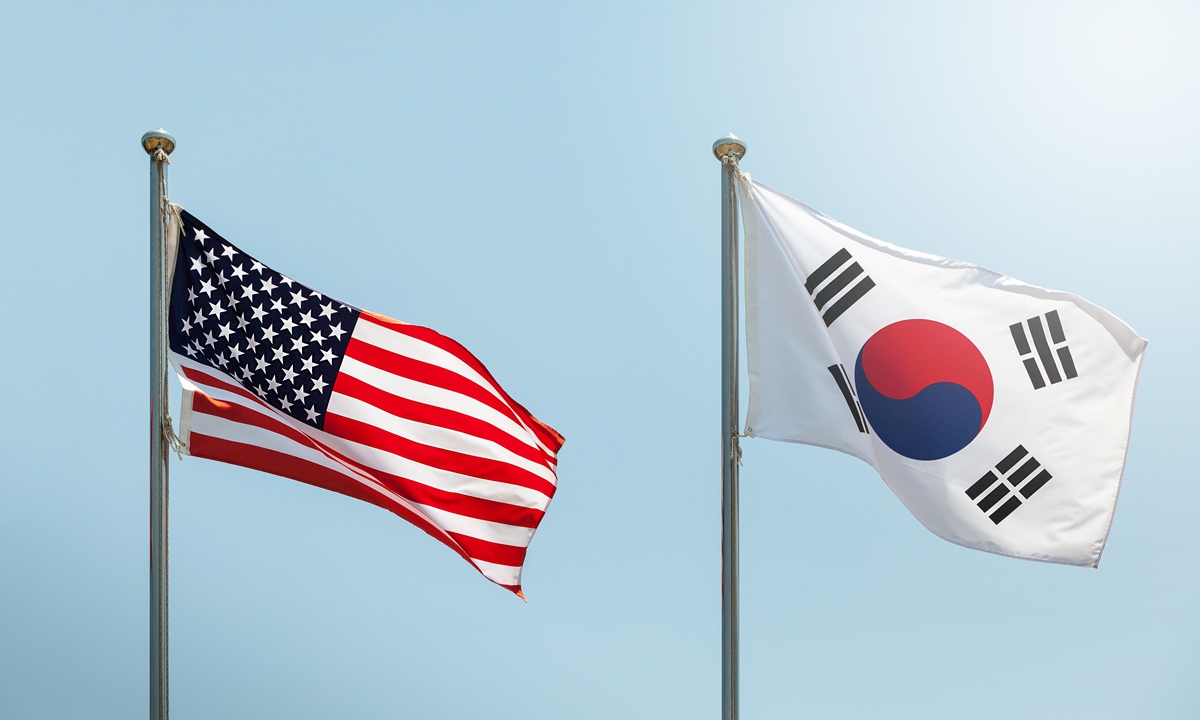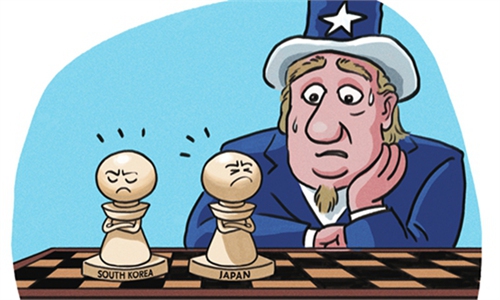US prepares a trap for South Korea in White House summit: Global Times editorial

Photo: VCG
South Korean President Moon Jae-in, who is currently on a visit to the US, is scheduled to meet with US President Joe Biden in the early hours of Saturday, Beijing time, after which the two sides will issue a joint statement. Some US media outlets including Voice of America have been hyping up the possibility of the statement touching upon the Taiwan question, saying the rhetoric may be not less strong than the US-Japan joint statement issued in April.
The US' urgent efforts to draw South Korea into its "anti-China united front" can be anticipated. But it is believed that the Moon administration will resist US coercion. Banging the drum for the US over China's core interests, such as the Taiwan question, is not in line with South Korea's national interests. Doing so would be equivalent to being forced by Washington to drink from a poison chalice. It is also worth noting that relevant remarks from US officials have been ambiguous, mirroring their difficulties in persuading South Korea to totally take their side.
Everyone knows that South Korea relies on the US when it comes to security. Washington hence has the leverage to influence South Korea's diplomacy. Yet China is South Korea's largest trading partner. The trade volume between China and South Korea is more than South Korea's total trade volume with both the US and Japan.
China is a key party in resolving the Korean Peninsula issue. Over the past few years, Seoul has, in general, made efforts to strike a balance between Beijing and Washington. Its national strength is not as strong as Japan's, yet South Korea is much wiser than Japan in keeping a diplomatic balance.
Moon's visit occurs as the Biden administration is trying hard to rope in its allies to jointly contain China. This scenario poses a new test for the independence and autonomy of South Korea's foreign policy. What content will be written down in the joint statement? This will be a touchstone of whether Seoul can adhere to its principles and bottom line despite US pressure.
The Korean Peninsula issue must be on top of their agenda, but Biden will be somewhat absent-minded on this, because he is now full of "China" in his head. South Korea, a country directly concerned with the Korean Peninsula issue, is under the US umbrella, but it has no say over how the US would provide the protection. For the moment, contradictions between the US and North Korea are particularly protruding. Seoul is often troubled by how to carry out peace-promoting efforts between Washington and Pyongyang
The crux of the problem is the US has long formulated its playbook on the Korean Peninsula, and its consideration on South Korea's interests has gradually been marginalized. When the Biden administration deals with this issue, it will attach more importance on the "China factor," in an attempt to deviate from traditional calculations like denuclearization and long-term regional security, to coordinate US needs for major power games.
When denuclearization on the peninsula seems arduous to realize any time soon, the Biden administration will deem "Japanizing" South Korea in the issue to be more profitable. As a result, Washington will use both carrot and stick to set up a trap for South Korea.
South Korea has developed relatively fast in recent years, which obviously has something to do with how it deals with both China and the US in a relatively stable manner. It has neither overly echoed the US strategy of squeezing China like Japan, nor behaved like Democratic Progressive Party authorities on the Taiwan island, which completely took US side for an illusory goal. The security situation that South Korea faces is the most complicated. It is thus hard for the country to keep such a balance. It has endured more pressure, and has won more benefits as well.
In years to come, South Korea will also need to move forward steadily in the complex environment of major power game in Northeast Asia, not to do anything radical and not to sacrifice long-term interests for short-term profits. Take a look at the entire Indo-Pacific region, the US has invested the most in Northeast Asia. Washington views the region as the most crucial strategic pivot to maintain its hegemony, and hopes to mobilize the region's resources to serve its own hegemonic interests. South Korea's interest lies in creatively interacting with the superpower, and in the meantime, maximizing its say in shaping ties with it, rather than completely being used as Washington's pawn.

